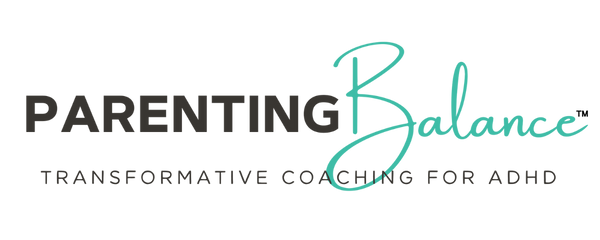5 SIMPLE PARENTING TIPS THAT WORK FOR PARENTS OF KIDS WITH ADHD
Many parents feel helpless and frustrated at times but if your child has ADHD, you may feel this way more often. It’s not uncommon for parents I talk to, to report feeling overwhelmingly inadequate and exhausted by the effort it takes to enforce simple daily routines at home. That’s because typical parenting strategies don’t work well for a child with ADHD. Children with ADHD are different.
Here are 5 things you can do to improve collaboration with a child with ADHD
1. Say what you want to see.
Working memory deficits can be super frustrating for parents. It’s hard to believe your child who can remember to check his status on his video game daily, can’t remember that the garbage goes out every Tuesday. This problem is related to internal vs. external motivation. Non-neurotypical brains “hear” their internal motivations much louder than they can hear external requests. This is a fact supported by science although it often looks very much like willful defiance to parents.
“Say what you want to see” is a parenting strategy that I use to support weak working memory. The idea is to tell a child what they should be doing instead of asking them to stop doing something you don’t like.
Instead of “stop hitting your sister” say “are you being cooperative?”
Instead of “don’t do that” say “are you keeping your hands to yourself?”
2. Reinforce what is right
I once read that kids with ADHD receive 500 times more corrective feedback than their neuro-typical brained peers. Imagine if you went to work every day and your boss was constantly asking you to correct your work product. How would that make you feel? Inadequate, powerless, and helpless? You bet. That’s how our kids feel sometimes but they don’t usually have the verbal and social skills to express it to their parents.
Over time, so much corrective feedback can create feelings of inadequacy that our children begin to believe are true. Parents need to interrupt this negative cycle by reinforcing what is right in any given situation!
Notice when your child is being helpful, cooperative, or flexible and compliment them specifically on it. Tell your child what they did right before telling them what needs to be changed or improved in any situation. Noticing what is right will boost your child’s feelings of self-confidence and worthiness and reinforces every small step they make in the right direction.
3. Reward effort, not outcome.
Kids with ADHD brains usually know what to do, the problem is they have difficulty synchronizing their behavior to do what they know. This is because of the delay in brain maturation and low levels of some neurotransmitters associated with ADHD.
Rewarding your child’s effort to do the right thing regardless of the outcome of that effort helps them feel motivated to keep trying to get it right.
4. Slow Down to Speed Up
Weak working memory, organization, and time management can create the perfect storm when it comes to keeping with the typical busy schedule for families today. Children with ADHD need to exert more cognitive effort to keep up than their neuro-typical peers. The problem is, there is only so much effort available. When a child’s available effort is low simple changes in routine or unmet expectations can lead to big emotional outbursts.
When emotions are high and patience is low it’s helpful to remember that slowing down can speed things up. Slowing down means taking a pause in any situation to allow time for the intensity of emotions to fade.
If you notice frustration building, pause for a moment to figure out if there’s a way to change course. Validate your child’s frustration by talking it over and trying to find a compromise. Even if you can’t change course immediately, the few minutes spent talking about it can help to diffuse frustration and get you back on track.
5. Use Consequences Effectively
Children with ADHD generally respond better to positive reinforcement and encouragement than to negative consequences. To effect the desired changes in behavior parents are seeking, consequences need to be meaningful to the child. To be meaningful, they should be explained in advance and occur immediately after the unwanted behavior. Swift, not harsh is most effective and for a child with ADHD, timing is very important. If the consequence can’t be delivered immediately, it’s better to let it go than deliver later. Consequences will be most effective when they are used sparingly and offered in relative balance to rewards.

